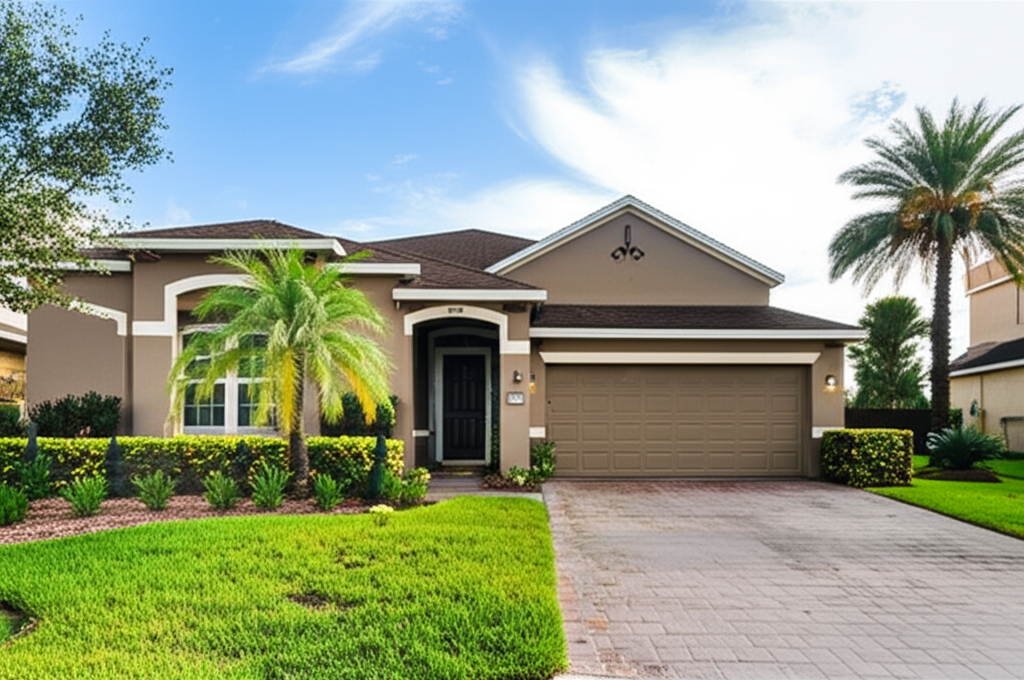Florida Investment Property: A Homebuyer’s Guide to Smart Returns and Smooth Closings
If you’ve been thinking about buying in Florida, you’re not alone. Sunshine, strong population growth, and year-round tourism make the state a magnet for homeowners and investors alike. But buying a Florida investment property isn’t just about finding a pretty place near the water. It’s about understanding how the numbers, laws, insurance markets, and local rules all work together—so you can protect your investment and grow it over time. Whether you’re considering a rental condo in Miami, a single-family home near Orlando’s theme parks, or a duplex in Tampa, the right plan can turn your purchase into a reliable, long-term performer.
Start with Strategy, Then Choose the Market
Before you scroll through listings, decide what kind of return matters most to you. Some buyers want steady cash flow and simpler management, often found in long-term rentals near employment centers and good schools. Others prioritize appreciation and flexible use, which might point to coastal areas or short-term rental (STR) zones where nightly rates can be higher—but rules, seasonality, and expenses require more attention.
Florida offers distinct “micro-markets” that serve different goals. The Orlando-Kissimmee area often appeals to short-term rental buyers who tap into tourist demand, but local zoning and HOA rules vary block by block. Tampa Bay and Jacksonville can offer a blend of job growth and solid long-term rental demand. South Florida—Miami, Fort Lauderdale, West Palm Beach—has global appeal and diverse tenant pools, but prices and carrying costs can be higher. On the Gulf Coast and Panhandle, seasonal demand and hurricane risk both loom larger, which affects insurance and occupancy planning.
A simple way to match strategy with location is to picture your ideal tenant and timeline. If you want long-term leases and minimal turnover, look near hospitals, universities, and major employers. If you plan to host vacationers, choose an area where short-term rentals are explicitly allowed and supported by local infrastructure, from parking to cleaning crews. The clearer your investment strategy, the easier it is to focus on properties that fit.
How the Money Works: Financing Investment Purchases in Florida
Financing an investment property differs from financing a primary home. Lenders typically require larger down payments—often 20% to 25%—and they expect stronger reserves. Interest rates are usually higher for investment loans than for primary residences. If you buy a second home you’ll occasionally see better terms than a pure investment mortgage, but second-home loans come with specific occupancy rules and restrictions on renting, so make sure your intended use aligns with the loan type.
Lenders may evaluate rental income in different ways. With a conventional investment loan, underwriters often look at your full debt-to-income ratio (DTI). They may also order a rent schedule (an appraisal addendum that estimates market rent) to determine how much of the projected rent can be counted toward qualifying. Some investors consider a DSCR (Debt Service Coverage Ratio) loan, which focuses on whether the property’s income covers its debt service. DSCR guidelines vary, so an experienced Florida lender can show you which programs fit your scenario and what documentation you’ll need.
Remember that Florida closing costs include state-imposed taxes that are different from many other states. You’ll see documentary stamp taxes and an intangible tax on the mortgage in your closing disclosure. Who pays for title insurance and certain fees can also vary by county custom and negotiation. Get a precise estimate early so you can compare properties “apples to apples.”
Consider a simple example. You’re buying a duplex in Tampa for $500,000 with 25% down. Your lender orders an appraisal with a rent schedule showing market rent of $2,200 per side. If the rents support your payment and reserves under your loan program, you’re likely in good shape—but you still need to test the numbers against realistic expenses, including insurance and HOA or condo dues if applicable. Underwriting is just the first hurdle; the real question is whether the cash flow meets your target after everything is paid.
Insurance and Risk: Plan Early, Not at the Closing Table
Insurance can be the swing factor in Florida. Recent storms and insurer pullbacks have reshaped the market, and premiums can vary widely based on location, building type, roof age, and flood risk. Get quotes from a Florida-savvy insurance agent before you make an offer or as soon as your offer is accepted. Don’t rely on the seller’s premium; their policy may be older, discounted, or structured differently.
Most insurers will want a four-point inspection on older homes, which looks at the roof, electrical, plumbing, and HVAC. Windstorm coverage is typically embedded in the homeowners policy, but flood insurance is separate. If the home sits in a FEMA-designated high-risk flood zone and you have a mortgage, flood insurance is usually required. Even outside mandatory zones, many investors carry flood coverage as a risk management strategy. A wind mitigation inspection, which documents protective features like impact windows or roof tie-downs, can often reduce premiums. For roof-heavy markets—think coastal counties—roof condition and age are decisive; underwriting rules can force costly upgrades sooner than you planned.
Build insurance diligence into your due diligence. For example, if a Jacksonville home pencils out at first glance but needs a roof in two years and sits near tidal creeks, your long-term costs may outstrip your rental projections. If you discover this during the inspection period, you can either renegotiate—perhaps a seller credit to buy down your rate or offset insurance—or walk away if your contract allows.
Taxes, Cash Flow, and What Changes After You Buy
Florida has no state income tax, which investors love, but property taxes and tourist-related taxes still matter. If the home won’t be your primary residence, you won’t receive Florida’s homestead exemption or the homestead assessment cap. Non-homestead properties do have a cap that limits certain annual assessment increases, but it’s higher than the homestead cap and doesn’t apply to every portion of the tax bill. Another nuance: when a property changes hands, its assessed value can reset closer to market value, so the seller’s current tax bill might be lower than yours will be. Ask the county appraiser’s office or your agent to estimate taxes based on your contract price.
If you plan to do short-term rentals, you’ll also be responsible for state sales tax and local tourist development taxes on stays under a certain duration, often 30 days. Some platforms collect and remit some of these taxes automatically, but you remain responsible for compliance. If you choose long-term tenants, you won’t typically deal with nightly taxes, but you should budget for ongoing maintenance, vacancy, and potential capital expenses like HVAC replacements.
On the federal side, rental income is taxable, but you can usually deduct operating expenses and take depreciation. If you later sell and want to defer capital gains, a 1031 exchange might be an option, subject to strict rules on timing and property type. A Florida-based CPA who understands real estate can help you build a tax plan that supports your investment goals.
Condo and HOA Rules: The Fine Print Matters More in Florida
Condos and HOAs are a fact of life across Florida, and they can be a friend or a foe to investors. On the plus side, communities can offer amenities that attract renters and spread out maintenance costs. The trade-off is rules—especially around leasing. Some associations limit the number of leases per year, impose minimum lease terms, or cap the number of rentals in the community. Others prohibit short-term rentals altogether. Always review the governing documents and any leasing addenda prior to the end of your contract’s review period.
In the wake of high-profile building failures, Florida law now requires milestone structural inspections and stronger reserve funding for many condo buildings, especially those of a certain height and age. This provides long-term safety and transparency, but it has led to higher fees and special assessments in some buildings. When buying a condo, request current financials, the most recent budget, reserve studies, and any notices of pending assessments. An “estoppel” letter, typically ordered during closing, confirms what the association says you owe and whether you’re in good standing; ask your agent to help obtain and review it early enough to make an informed decision.
Here’s a practical scenario. You’re considering a Miami Beach condo with past-due concrete repairs and a newly adopted reserve schedule. The monthly dues and a potential special assessment could wipe out your projected cash flow for the next two years. If rental demand remains strong and the building’s long-term health improves, it might still be a smart buy—but your underwriting should reflect the real costs, not just the current HOA dues on the listing.
Short-Term Rentals: Legal, Profitable, and Carefully Managed
Florida welcomes tourism, but STR rules are local and specific. One city might allow nightly rentals in designated areas, while the neighboring city bans them in single-family zones. Some counties require business tax receipts, local STR permits, and safety inspections. At the state level, you may need a lodging license if you rent for short stays. Before you buy, verify the property’s zoning, check whether the HOA or condo allows STRs, and confirm the licensing steps and tax registrations you’ll need. A reputable local property manager can help forecast occupancy and nightly rates and can flag hidden operating costs like linen services, guest supplies, and frequent turnover maintenance.
Short-term rentals can produce impressive gross revenue, but expenses are also higher. Furnishings, utilities, platform fees, cleaning, and dynamic pricing software add up. Be conservative with your projections and test worst-case occupancy scenarios, such as a storm season or a new ordinance that shortens allowable stays. Many successful investors run sensitivity analyses—if revenue drops 15% and insurance rises 20%, does the property still meet your minimum return?
The Offer, Escrow, and Florida-Specific Due Diligence
Once you find the right property, your offer sets the tone for a smooth closing. In Florida, an “earnest money” deposit shows you’re serious. That deposit is typically held in “escrow,” a neutral account managed by a title company, attorney, or brokerage until closing. Your contract may include “contingencies,” which are conditions that must be met for the sale to proceed—like a satisfactory inspection, loan approval, or appraisal. If a contingency isn’t met, you may be able to cancel and get your deposit back, as long as you follow the contract timelines.
Many Florida buyers use a standard “As Is” contract that gives a defined inspection period. During that window, you can conduct inspections and cancel for any reason. This isn’t a license to be careless; it’s a safety valve. Use the time to order a general home inspection, wind mitigation and four-point reports if applicable, a survey, a title search, a municipal lien search, and insurance quotes. If the property is in an HOA or condo, the seller should provide governing documents and disclosures; condo buyers generally have a statutory period to review and cancel after receiving those documents.
Imagine you’re under contract on a 1960s block home in St. Petersburg. The inspection reveals older aluminum wiring and a roof nearing the end of its useful life. Your insurance agent tells you some carriers won’t cover the wiring and others will surcharge it; the roof age will also drive up premiums. Instead of walking, you negotiate a seller credit at closing to offset an interest rate buy-down and part of the wiring upgrade. Because you flagged these issues within the inspection period and documented the estimates, you have leverage without burning your escrow deposit.
Negotiating in a Dynamic Market
Florida’s market isn’t uniform. Some neighborhoods still see multiple offers, while others sit longer and invite negotiation. Price is only one lever. If a seller resists a lower price, consider asking for closing credits, a rate buydown, or repairs that solve insurance hurdles. In condo deals, up-to-date documents and clear answers on reserves, pending assessments, and leasing policies are often as valuable as money—uncertainty has a cost, and clarity can justify your offer.
It also helps to show you’re organized. A strong pre-approval from a Florida lender, proof of funds for the down payment and reserves, and a realistic closing timeline can separate you from competing buyers. Sellers want certainty. When your agent presents you as reliable and informed, your chances of getting to “yes” improve, sometimes at better terms.
Property Management and the Day-to-Day
Who will answer the phone when a guest can’t find the Wi-Fi password or when a tenant reports a leak at 10 p.m.? If you live out of state or prefer a hands-off approach, a professional manager can be worth the fee. For long-term rentals, expect management fees in a modest percentage of monthly rent, plus leasing fees when a new tenant is placed. For STRs, management fees are typically higher because of the operational intensity. Clarify exactly what’s included—marketing, guest communication, maintenance coordination, accounting—and make sure the manager understands local compliance and tax filings.
Florida’s landlord-tenant laws are generally considered owner-friendly, but they still set clear rules for notices, deposits, and access. Keep good records, use written leases tailored to Florida law, and maintain the property proactively. A small plumbing fix today often prevents a bigger claim tomorrow.
Think in Decades, Not Months
The best Florida investment purchases are resilient. They can withstand storm seasons, insurance fluctuations, and economic cycles because their fundamentals are sound: durable construction, sensible leverage, realistic rents, and conservative expense forecasts. Plan for capital expenditures by setting aside reserves. Consider your exit options—refinance, 1031 exchange into a larger property, or hold and harvest cash flow. And keep an eye on local policy and infrastructure. New employer announcements, transportation projects, or zoning updates can move the needle on both rents and values over time.
Bringing It All Together
Buying a Florida investment property is part math, part local knowledge, and part thoughtful risk management. Define your strategy first, then match it to the right market and property type. Get your financing lined up with a lender who understands how Florida underwrites rent and insurance. Verify insurance and taxes early—don’t wait for closing week. Read the condo and HOA rules as if your return depends on them, because it does. Use contingencies wisely during your inspection period, and negotiate based on facts, not hopes.
With the right team—an experienced local agent, a proactive lender, a detail-oriented inspector, and an insurance advisor—you’ll make confident decisions and avoid costly surprises. Florida offers opportunity across price points and property types. Approach it with clarity and diligence, and your investment can deliver the sun-soaked returns you’re looking for, long after the glow of closing day fades.




